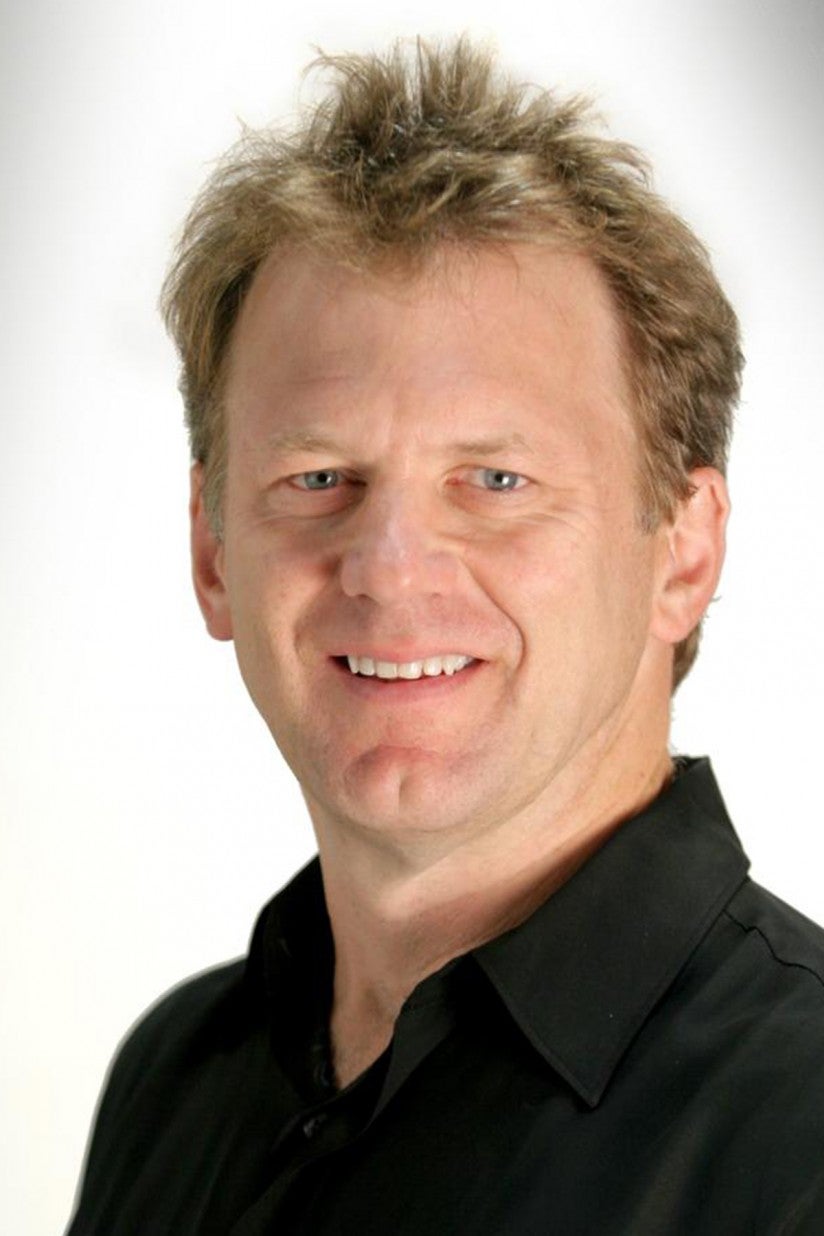
Billionaire William Ackman is the subject of the documentary Betting on Zero. (Photo/Courtesy of Zipper Bros. Films)
Filmmaker Ted Braun talks about the conflict between a billionaire and Herbalife
The USC faculty member discusses his upcoming film about William Ackman and the multinational corporation
Ted Braun has worn many hats during his acclaimed career.
As a documentarian, he brought the conflict in Sudan to life with the award-winning film Darfur Now. As a screenwriter and director, he has covered the golden age of aviation and the rights of the developmentally disabled. And as an associate professor at the USC School of Cinematic Arts, he has led the efforts to bring the development of imagination and personal material to the forefront.
Braun discusses his upcoming documentary Betting on Zero and other topics of interest.
Betting on Zero made its debut at the Tribeca Film Festival. Tell me about the film.
Betting on Zero is the story of a hedge fund billionaire, William Ackman, and his campaign to expose Herbalife, a New York Stock Exchange-traded company, as a pyramid scheme.
What was your intention in making the film?
The usual. Make a riveting film that keeps people in their seats. Beyond that I had no particular agenda; I certainly had no activist or exposé agenda in making this film.
I was intrigued by a member of the 1 percent of the 1 percent — a billionaire Wall Street hedge fund manager — putting on a white hat and saying, “I’m on a moral crusade.” And doing so by shorting a company’s stock to the tune of a billion dollars. That was surprising to me. That interested me.
The company that he was going after was interesting as well because Herbalife prided itself on its values — nutrition, health and a chance for people to realize the American dream. Values I share. And yet it was accused of being a pyramid scheme. A fraud. That was surprising. That was interesting.
Herbalife had a strong reaction to the film. What about that?
The morning after our premiere at the Tribeca Film Festival, I woke up to a text from one of the film’s producers. Herbalife had a website up attacking the film. The company reacted without having seen the film. With a lot of insinuating questions about who was behind it and why it was made. All of which were untrue.
Did you prepare for this reaction when you set off?
We knew going into production that both of the principals in this conflict were litigious and well-heeled. They could support litigation and were not shy about taking opponents into court. So, yes, we prepared as best we could. And we engaged all of the possible participants directly, in a way that was as open and transparent as possible.

I wanted to tell an exciting story that brought to life as many sides as I could. So I approached them both. I wanted them to participate and was committed to bringing their perspective to life. Ackman agreed on our first meeting. In the case of Herbalife, I met with the CEO of the company within two weeks of getting greenlit. We tried to find a way to satisfy all their concerns that also allowed us to make a film.
They had questions about the financing. They thought Ackman was behind the film. I was explicit, and as clear with them as I could be, that he wasn’t. Then somewhere late in 2014, after talking with them for the better part of a year, Herbalife said, “You know, all the publicity surrounding this battle — it’s just too much of a circus for us to get involved for now. But stay in touch.” In essence they closed the door, but didn’t lock it. And so I continued to talk to them — trying to find a way to bring them into the film — right up until we locked picture. But the company and the distributors declined every invitation.
You’re both an alum and a professor here so, as an alum, what’s something you learned as a film student that you found yourself going back to on the set of Betting on Zero?
“Somebody wants something badly, but is having difficulty getting it.” That’s a story. Whether you’re trying to communicate to a financier, a potential subject, writing a scene or talking with the crew on a shoot, or in the editing room — no matter what stage of the process you’re in, this concept is lesson one. It always comes back to somebody wants something badly, but is having difficulty getting it. That’s it. You have to know who your somebody is. You have to know that they want something badly. And you have to be damn sure that there is a difficulty. If there isn’t difficulty, in the case of verité documentary filmmaking, then why are you there? Why is the camera on?
As a professor, can you tell me about the philosophy that you try to impart?
Cinematic storytelling is a marriage of two elements — technique and imagination. What I try to do, in every course I teach, is develop both. We’ve reshaped the curriculum in the [Writing for Screen & Television division] — and this approach is now spreading to our work with the other divisions — so that incoming students initially approach technique and imagination as sort of separate endeavors, then they weave them together. Bring the elements together in some new way. A synthesis. The result is meaningful original work. To me that is the core.
Technique — for screenwriters, directors or whatever discipline you’re in — encompasses an understanding of how your craft actually works. The lessons of your predecessors that you bring to bear on your own stuff. It enables you to express yourself clearly and makes you more efficient.
The imaginative part is, for writers especially, is finding material that is yours and yours alone. Which means coming to some recognition of who you are and where your memory, your experience and your observations lead you. The development of these capacities is something that has largely been neglected, at least in a lot of formal film education.
I believe imagination can be developed in a deliberate way. Recognizing and becoming aware of the aptitudes of memory, experience and observation enables you to identify the raw materials of your work as a writer — it’s where your characters, the worlds of your stories and the conflicts that move you come from. Exercising these imaginative aptitudes, in much of the same way that an athlete or musician would exercise a comparable set of facilities, ultimately helps writers develop confidence in their imagination, and confidence that they’ll be able to bring material that’s emotional and unforgettable to the page. And do this again and again. Which you have to be able to do over the course of a career. It’s the foundation.
